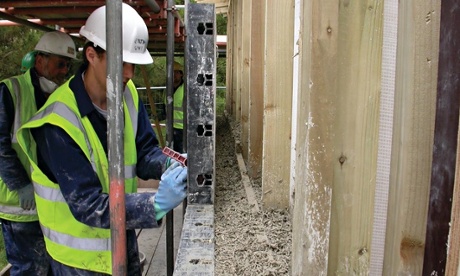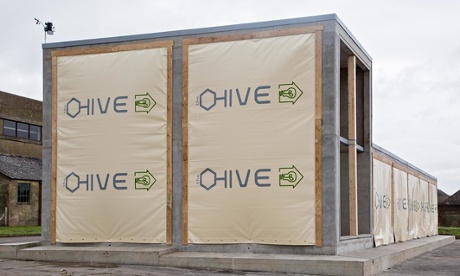The fightback campaign by 10 public works officials taking the fall for the R246m spent on upgrades to President Jacob Zuma’s Nkandla home begins on Monday.
City Press understands that the officials will plead not guilty when their hearings kick off.
They face a raft of charges,ranging from financial misconduct and allowing irregular expenditure or fruitless and wasteful expenditure to occur, to prejudicing the administration of the department and misconduct for failing to ensure contractors were appointed in a fair, equitable, transparent, competitive and cost-effective manner.
The officials, who occupy senior positions, also face charges for contravening the public service’s code of conduct.
But five of them, who spoke to City Press on condition of anonymity, say they are nothing more than scapegoats made to take the fall for their political bosses – former public works minister Geoff Doidge and his former deputy Hendrietta Bogopane-Zulu.
“The only thing that is left for us is to grow goatees and horns, and we will be the perfect scapegoats for them. If ministers were also charged for applying the pressure on us to cut corners, leading to us not following the law, then we would understand.
But to blame officials who were scared to put a foot wrong is abominable,” said one official.
Another said: “The charge sheets say we made or permitted the unauthorised expenditure, irregular expenditure or fruitless and wasteful expenditure in Nkandla. But all the political leadership was there with us at all times. If we made mistakes, it was because they made us do it.
"We couldn’t question them when they wanted the processes to move faster because that is frowned on, and we were scared of losing our jobs.”
A third said: “I am still confused because throughout this project, I thought I was following instructions from above.
"No one in this group of people charged ever questioned why we were not following the policy on tenders because those who were supposed to point these things out were there in [the] meetings – senior people including ministers and DGs [directors general]. It would be better if all of those involved in Nkandla, including ministers, are in the same boat.”
The five denied ever personally benefiting from the Nkandla project.
“What did I gain for working on that project? Nothing,” said a fourth official.
Secrecy
“I didn’t commit any fraud or corruption and did as I was told – even when sometimes we should have asked hard questions, we didn’t because there was secrecy around the entire project.
When tenders were advertised, we went straight to companies and appointed them on instruction because they were already working on Nkandla.
It can’t be that now that there are problems around Nkandla the workers must take the fall alone. But I am not worried because I believe I did nothing wrong … I am not scared.
I know it’s hard for my family to see my name associated with bad things about Nkandla and that makes me very unhappy.”
Public works legal adviser Phillip Masilo said the State attorney’s office had appointed independent chairpersons to preside over the hearings.
But lawyers for the accused have asked the department to conduct one “collective” disciplinary inquiry.
“We have considered postponing the disciplinary hearings to consider the lawyers’ request for a collective hearing, but a decision has not been made,” Masilo said.
The hearings are set from Monday until 21 October.
'Not guilty'
Claude Naicker, the KwaZulu-Natal manager for the Public Service Association, representing six of the officials, said: “They will all plead not guilty because they are innocent.”
The officials, according to him, were very worried because if they were found guilty they would lose their jobs.
“These are very senior officials who are fully aware of the rules and procedures that must be followed, and they admit that they have strictly abided by the rules in the past. So why would they, knowing the law, be unprocedural in their conduct? It’s because they took instructions from above and that’s the only time they would ever breach the rules because their superiors told them to,” he said.
“They also want the department to show them the proof of how they benefited from breaking the law. They haven’t said who should take the fall for Nkandla, but it will definitely come out during their disciplinary hearings.”
Walkout
On Friday, opposition parties walked out of the parliamentary committee on Nkandla, refusing to legitimise a process they said would shield Zuma from any liability.
The ANC, which has a majority on the committee, will go ahead without them.
The walkout happened after ANC committee members refused to agree to call Zuma to answer questions, and to enforce Public Protector Thuli Madonsela’s finding that he should repay some of what was spent on his home.
The ANC committee members said that there was no need to call witnesses and that Zuma would not have been aware of wrongdoing by officials. They also said they had the right to recommend alternative corrective action.
SIU denied
Sources within the Special Investigating Unit (SIU), which also probed the Nkandla spending, say they were denied “crucial” information by five companies Zuma appointed to work on his Nkandla home.
The companies – R&G Consultants, Igoda Projects, Ibhongo, Minenhle Makhanya Architects and Moneymine – hired by public works as they were already working on Zuma’s home, refused to respond to letters asking if they had been paid, and how much, for “private work” by Zuma or his family.
Instead, they responded with lawyers’ letters, saying they had no right to the information because the SIU’s terms of reference did not include private payments made by the Zuma family.
Another SIU source said they left it at that because of growing pressure to release their report.
Pamela Mfeka, a director of Moneymine, which received more than R50m , declined to comment, saying: “I haven’t been to the office for two weeks.”
Dumi Gqwaru, the CEO of R&G Consultants, which was paid R13.7m, said he would only answer “official” questions.
Igoda, which was paid R2.5m, failed to respond to questions.
A secretary at Ibhongo asked that questions be sent next week because “there is no one here to answer your questions”.
The architect’s case
But it is not only the SIU that is battling to get answers from Nkandla contractors.
The “huge task” of serving papers on those implicated in the SIU report has delayed attempts by Makhanya’s lawyer, Barnabus Xulu, to join them as respondents in the civil case, which will force them to account for money received.
Xulu wanted to file the formal application to have the other entities added last Friday, but there were too many to serve papers on.
He said the process was going ahead, as was his bid to force the state to provide him with classified SA National Defence Force and SA Police Service security assessments and project budgets. The departments agreed this week to allow him to read the recommendations but not file them in court.
“Giving us the right to view the documents is not sufficient. This action is about requesting further and full particulars, for which actual documents have to be before court,” he said.
-
City Press
 "It cannot be that there was enrichment that came about as the result of an error of judgment of someone and that the president has something to pay," senior ANC MP Mathole Motshekga said.
"It cannot be that there was enrichment that came about as the result of an error of judgment of someone and that the president has something to pay," senior ANC MP Mathole Motshekga said.






